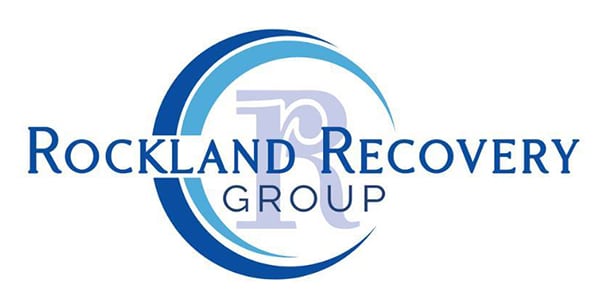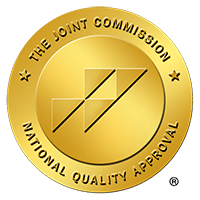Connecting with one of the best opioid addiction treatment centers in Massachusetts is the first important step in recovering from opioid abuse. At Rockland Recovery, we understand how challenging opioid addiction recovery is. This is why we offer the most comprehensive, evidence-based approach to opioid rehab and a team of leading experts in the field of addiction recovery.
Jump to Section
Understanding Opioid Use Disorder
Opioids are highly addictive substances that are prescribed for severe pain. People who use them, especially when there is uncontrolled use, are at risk of developing an opioid use disorder. When opioids are used, they trigger the release of endorphins, otherwise known as “feel-good chemicals.” Opioids are used for pain relief but also produce feelings of euphoria in those who use them.
Opioid substances also have a relatively short half-life, meaning the effects of the drugs wear off quickly. When misused, this can leave the person craving and seeking more to recreate the euphoric high feeling.
Each time this happens, the risk of developing an opioid addiction increases. Those who take opioids for chronic pain need to be especially careful with how they take their prescribed medications.
If your current medication dose isn’t relieving your pain, it’s important to talk to your doctor. Don’t increase the dose or frequency on your own. Your doctor can safely adjust your prescription or explore other treatment options.
If you’re fighting an opioid addiction, reach out to Rockland Recovery today at 888-299-4833. We have someone available to take your call 24 hours a day. Another great resource for help with opioid addiction treatment is the Substance Abuse and Mental Health Services Administration (SAMHSA). They offer both an online provider directory and a 24-hour National Helpline that can be reached at 1-800-662-HELP (4357).
Which Drugs are Considered Opioids
Opioids are psychoactive drugs that are commonly prescribed to relieve pain. In addition to pain relief, opioids are often misused for the feeling of euphoria they produce. This class of medications and substances is actually divided into two categories – opioids and opiates.
There isn’t a difference between opioids and opiates in terms of their effects or how addictive they are. The difference is that opiates are derived from natural plant substances, primarily the resin of poppies. Opioids are mostly synthetically produced in a lab. To prevent any confusion between the two, all medications and substances in these categories are generally referred to as opioids.
The list of the most common opioids includes:
- Fentanyl
- Codeine
- Morphine
- Oxycodone (Oxycontin, Percocet)
- Meperidine (Demerol)
- Hydrocodone (Vicodin)
- Methadone
- Tramadol
- Opium
- Heroin
What Is Opioid Addiction Rehab
Opioid addiction is challenging but can be overcome with an effective addiction treatment plan. At Rockland Recovery, we have many people come to us asking what opioid addiction treatment includes, but the answer is always based on the individual. This is why we always perform a thorough assessment that includes substance use, medical history, mental health, and social or economic issues that might contribute to opioid misuse disorder.
Not everyone’s path to recovery looks the same. Still, whatever opioid addiction rehab looks like for you, we can assure you that you’ll receive the top level of addiction treatment with a comprehensive and holistic approach led by our incredible team of clinical experts.
Components of opioid addiction rehab may include:
Detox
Detoxification is the first step in overcoming opioid addiction. It needs to occur in a specialized facility equipped to handle both the physical and psychological symptoms associated with opioid withdrawal. These facilities provide a safe environment where medical professionals can monitor and support patients through the initial and often challenging phase of sobriety.
Inpatient Treatment
After detox, patients usually move into inpatient treatment, which provides an intensive level of support and structured care. Inpatient treatment centers offer a controlled environment where individuals can receive around-the-clock care and therapy, minimizing the risk of relapse during this vulnerable period.
Partial Hospitalization Programs (PHP)
Partial hospitalization programs (PHPs) are ideal for those who have completed inpatient treatment but still require a structured recovery environment. PHPs offer a high level of care, including medical supervision and therapeutic services, but allow patients to spend evenings at home. This structure supports a gradual transition to everyday life while maintaining a focus on recovery.
Intensive Outpatient Treatment
Intensive Outpatient Programs (IOP) demand several hours of treatment several days a week but are designed to allow patients to live at home and continue with their daily responsibilities. This flexible setup helps individuals integrate recovery processes into their regular life, balancing treatment with personal and professional obligations.
Medication-Assisted Treatment
Medication-Assisted Treatment (MAT) involves using FDA-approved medications to alleviate withdrawal symptoms, reduce cravings, and decrease the chances of relapse. MAT is a critical component of the treatment process, helping to stabilize patients and support long-term recovery goals.
Dual Diagnosis Therapy
Many individuals struggling with opioid addiction also face mental health disorders. Dual diagnosis therapy addresses both the addiction and any concurrent mental health issues, providing a comprehensive approach to recovery that treats all aspects of a patient’s health.
Aftercare Planning
Creating a long-term aftercare plan is essential for sustained recovery from opioid addiction. This plan involves continuous support and encourages active participation in therapy, whether through individual sessions or support groups. Aftercare is designed to provide ongoing resources and support to prevent relapse.
Sober Living
Sober living homes offer a safe and supportive residential option for those in the latter stages of their addiction treatment. These environments foster independence while still providing a structured setting that supports recovery. Time spent in sober living can significantly improve the likelihood of maintaining sobriety in the long term, providing a bridge between intensive treatment and full return to daily life.
Top Opioid Addiction Treatment in Massachusetts
If you or your loved one are struggling with opioid addiction, you don’t have to travel this road alone. Reach out to Rockland Recovery at 888-299-4833, and let us help you take the first important steps to live your best life, free from the grips of opioid addiction.
We offer a full spectrum of addiction treatment services and a staff of professional clinical experts to deliver the best in addiction care. Don’t wait until tomorrow. Call Rockland Recovery today.





